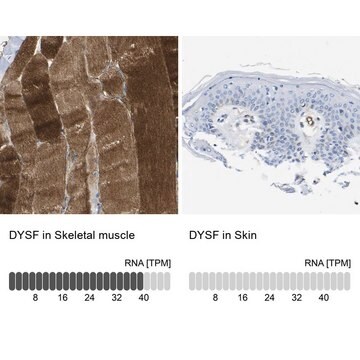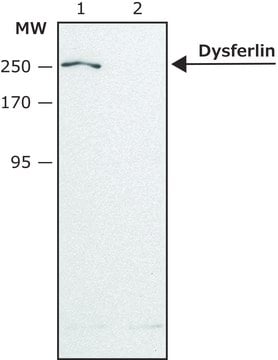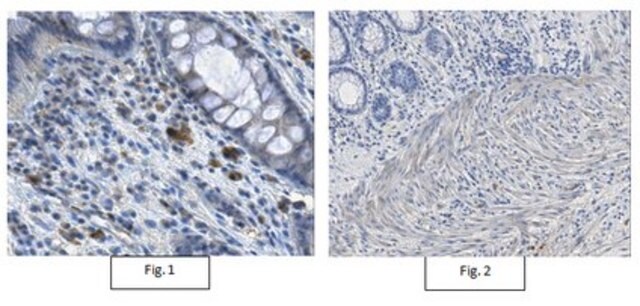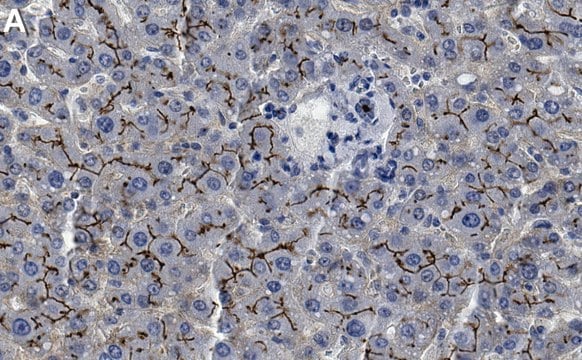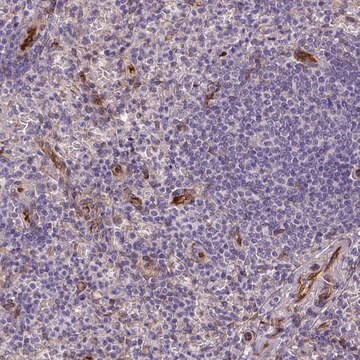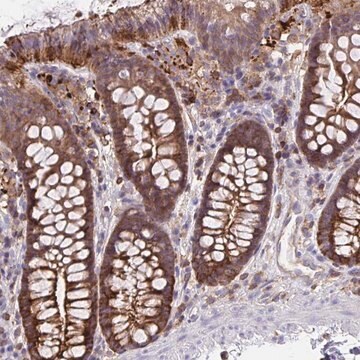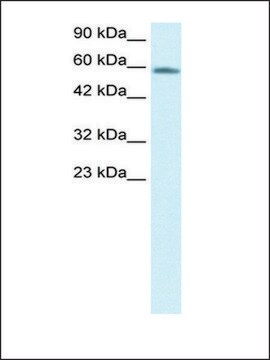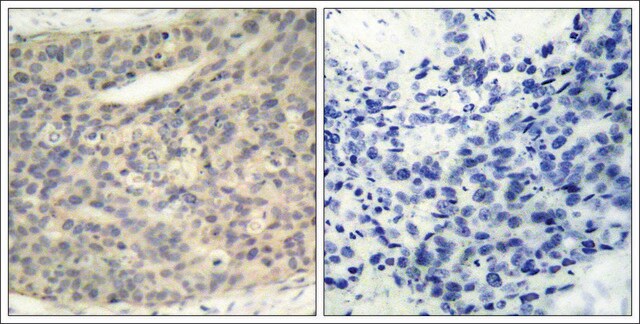SAB4200453
Anti-Dysferlin (N-terminal) antibody produced in rabbit

~1.0 mg/mL, affinity isolated antibody, antigen mol wt ~250 kDa
Synonym(s):
Anti-DYSF, Anti-Limb girdle muscular dystrophy 2B
About This Item
Recommended Products
biological source
rabbit
conjugate
unconjugated
antibody form
affinity isolated antibody
antibody product type
primary antibodies
clone
polyclonal
form
buffered aqueous solution
mol wt
antigen ~250 kDa
species reactivity
rat, human, mouse
enhanced validation
recombinant expression
Learn more about Antibody Enhanced Validation
concentration
~1.0 mg/mL
technique(s)
dot blot: 0.1-0.2 μg/mL using extracts of HEK-293T cells over-expressing human dysferlin and 1-2 mg/mL using A10 cells.
immunohistochemistry: 20-30 μg/mL using methanol-acetone fixed frozen sections of mouse skeletal muscle.
indirect immunofluorescence: 5-10 μg/mL using differentiated C2C12 myoblasts.
UniProt accession no.
shipped in
dry ice
storage temp.
−20°C
target post-translational modification
unmodified
Gene Information
human ... DYSF(8291)
mouse ... Dysf(26903)
rat ... Dysf(312492)
General description
Immunogen
Application
Biochem/physiol Actions
Physical form
Disclaimer
Not finding the right product?
Try our Product Selector Tool.
Storage Class Code
10 - Combustible liquids
Flash Point(F)
Not applicable
Flash Point(C)
Not applicable
Certificates of Analysis (COA)
Search for Certificates of Analysis (COA) by entering the products Lot/Batch Number. Lot and Batch Numbers can be found on a product’s label following the words ‘Lot’ or ‘Batch’.
Already Own This Product?
Find documentation for the products that you have recently purchased in the Document Library.
Our team of scientists has experience in all areas of research including Life Science, Material Science, Chemical Synthesis, Chromatography, Analytical and many others.
Contact Technical Service